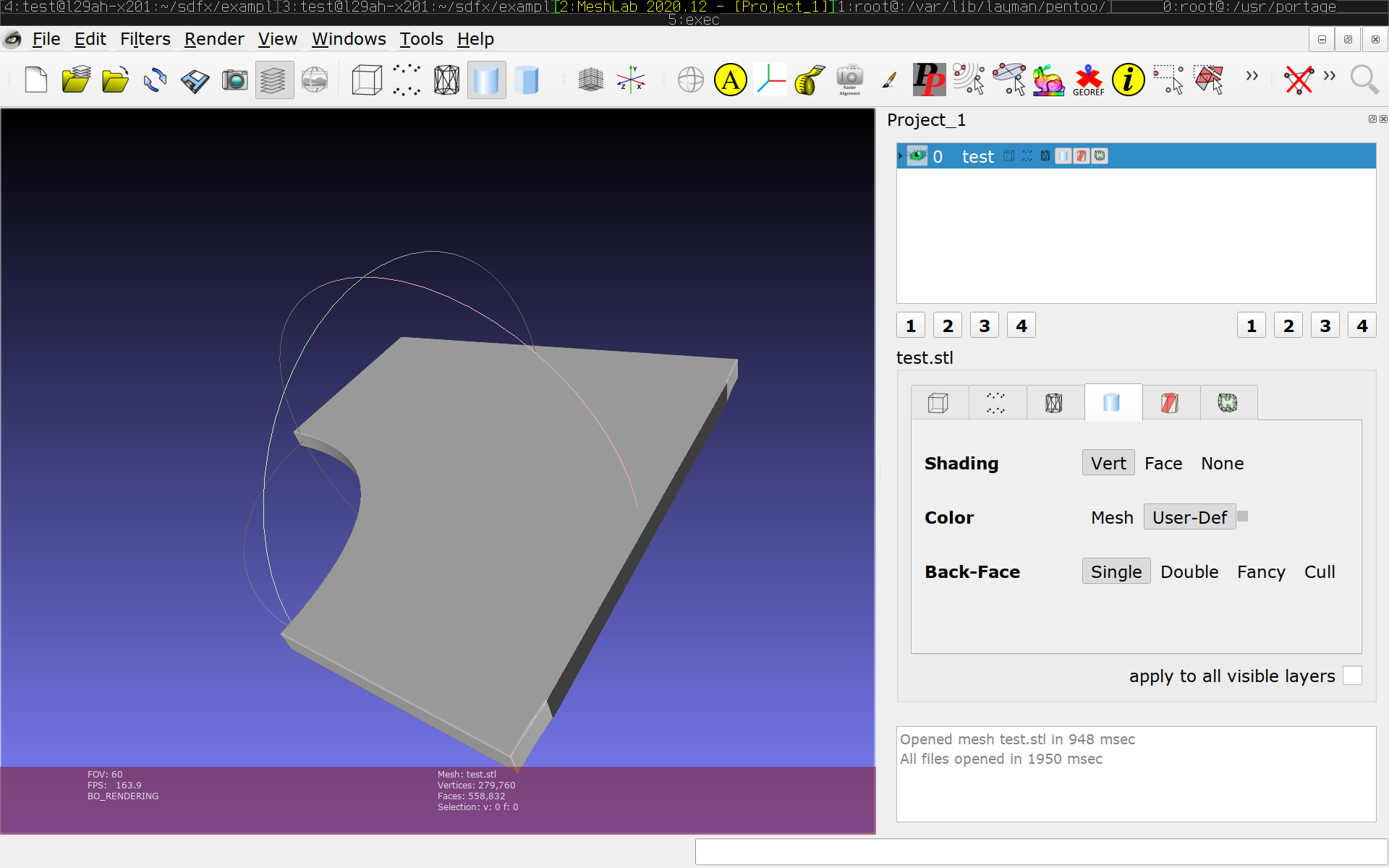In general the blending functions that can be used on a union (ie changing the underlying minimum function) can generate undesirable artifacts. E,g, if you try to fillet a union the surface can bump out on the opposite side. If those artifacts are outside the bounding box of the top level entity then you end up with a hole because only triangles within the bounding box are rendered.
The simple fix/work-around for this is to intersect the entity with a box that matches the bounding box of the entity. This cuts-off any artifacts outside of the bounding-box and gives you a clean render.
Example:
Having said that it might me useful to have a function that takes an sdf and returns an sdf for the bounding box of that entity.
Probably related to https://github.com/Haskell-Things/ImplicitCAD/issues/204 except your implementation miscalculates the bounding box. Example code:
Result: